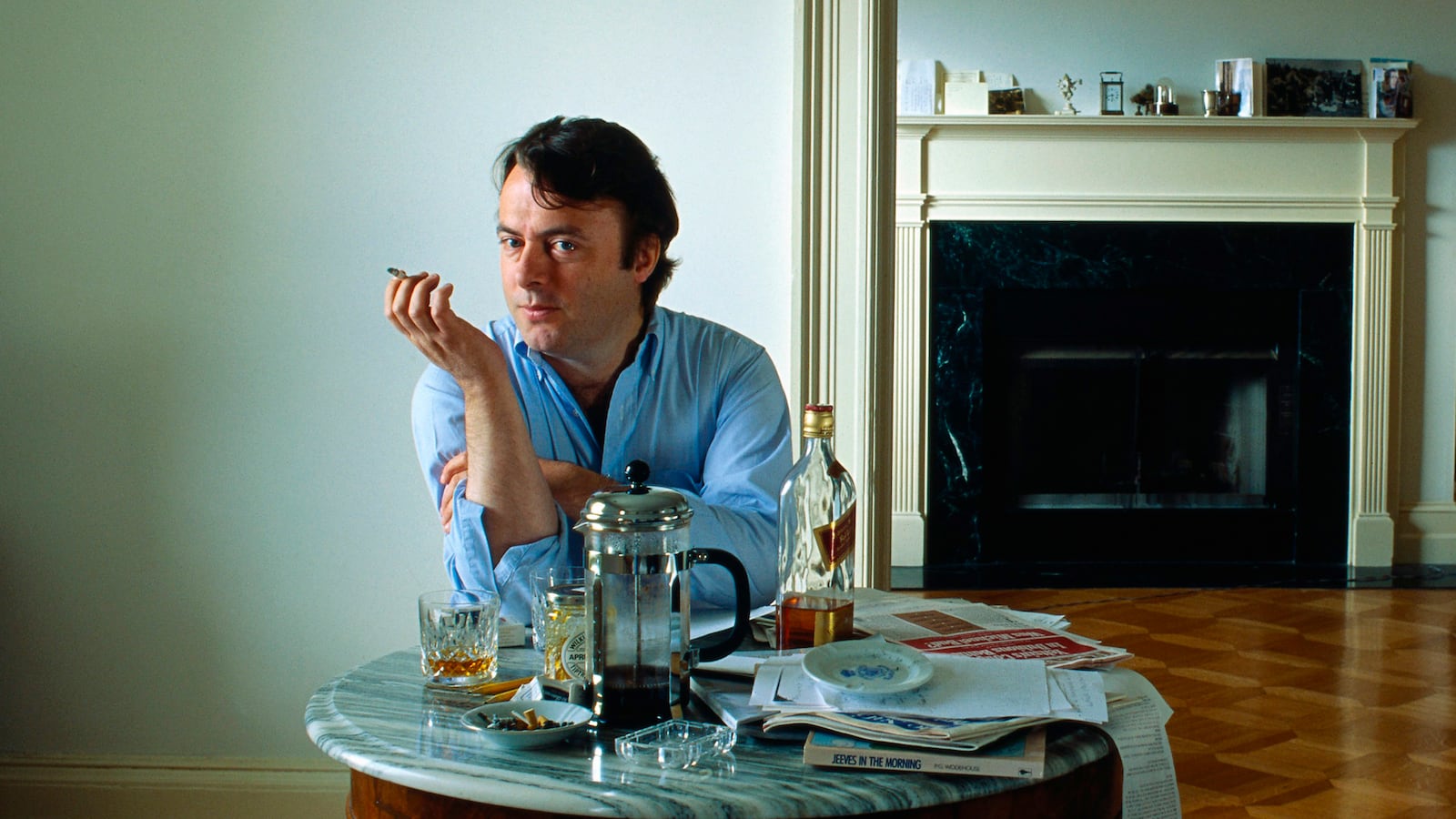It is fitting that Christopher Hitchens would die one day after the official ceremonies in Baghdad to end the Iraq war. I befriended Christopher and his family in the fall of 2002 in the run up to that war. I will never forget the evening we met. I had just started dating a woman I nearly married and we returned to a party hosted by one of my editors. There was Christopher, holding court, surrounded by journalists and aspiring intellectuals. Even though that evening the pending war was on everyone’s minds, Christopher wanted to talk about the Balkans and the history of American socialism.
That evening Christopher and I talked until the sun came up. He mainly talked and I mainly listened. We discussed the history of neoconservativism (he did not approve of Norman Podhoretz and instructed me to read one of his essays from 1984 about George Orwell as an example of quoting someone out of context. He did however think Paul Wolfowitz was willfully misunderstood by his progressive critics). We discussed the cold war and the importance of Arthur Koestler and why every political writer must read Darkness at Noon. He then treated me to a brief history of American socialism from Eugene Debs to Norman Thomas.
Sometimes Christopher is called a “contrarian,” but I never thought that label was right. It’s true that he delighted in argument and intellectual confrontation. But he did not just believe things because they were controversial or because no one else in his circle was making the arguments. On the Iraq war, he never stopped believing that the war was just and that American arms were needed to end the regime of Saddam Hussein. But Christopher did not arrive at this position simply because his old colleagues at the Nation Magazine did not. He came to support the Iraq war after befriending many Iraqis, and particularly Kurds, who told him about the horrors of that dictatorship. For Christopher, supporting the war was an expression of his anti-totalitarianism. He would later say that the war pitted the anti-totalitarian left against the anti-imperialist left.
Of all the arguments that he despised in this period from the anti-war crowd, the one that most bothered him was the claim that Saddam Hussein was like any other tyrant. I remember once when another intellectual made this claim at his dinner table he stopped and said calmly, “No. That is a lie.”
But despite his support for the Iraq war, he never hesitated from reporting out, when he saw fit, all of the problems in its implementation. He skewered the Bush administration for failing to build adequate power plants in the first year after the fall of the regime. He was up front about the damage caused by Abu Ghraib, but in his same column he made the crucial point that the prison under the Americans was not as horrific as it was under Saddam Hussein.
Christopher’s friendship was more like a mentorship. I rarely left his apartment or his summer home in California without at least one book I needed to read. When he wanted to make a point, he could be withering. I remember once when I was defending Ariel Sharon’s Operation Defense Shield, Christopher stopped me in my tracks and recalled in vivid detail the latest atrocity he had read about settler violence against their neighbors. “That was a pogrom,” he told me provocatively. “What is Sharon doing about that?” Another time, before he wrote his treatise on Atheism, he scolded me for believing in God. “So you believe in the Lord,” he said. “Well, then you’re a serf.”
My fondest memory of Christopher was Valentines Day in 2005. He had just returned from Iraq and his wife Carol and daughter Antonia were away. My girlfriend and I ran into him on the street. We had been planning on our own private Valentines Day dinner, but Christopher sweetly asked if we were busy that evening. For Christopher, of course we had time. So it was the three of us that night and we discussed everything from the Rolling Stones “Street Fighting Man” to the philosophy of Martha Nussbaum. He said he considered her perhaps the greatest living intellectual. I disagreed, that person was sitting across the table from me.






